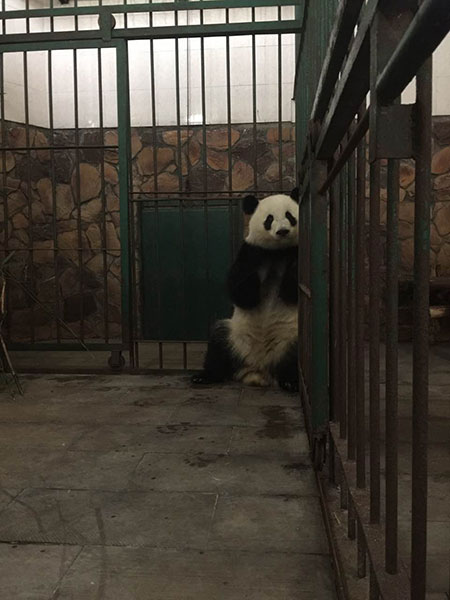Luo Yunhong the panda keeper is happy to take care of Mei Lun and Mei Huan, although he has found it difficult to communicate with the 3-year-old twin sisters.
The twins were returned to the Chengdu Research Base of Giant Panda Breeding in Sichuan province on November 5 from Zoo Atlanta in the United States.
"When I said 'come here' in the Sichuan dialect, they ignored me," Luo complained.
The two, born on July 15, 2013, are the first surviving panda twins ever born in the United States.
Their parents, Lun Lun and Yang Yang, were sent to Zoo Atlanta in 1999 under a breeding and research agreement between China and the United States. According to the agreement, their cubs born in the United States must be returned to China.
Luo said he realized the twins' US keepers had greeted them in English, and so they had become accustomed to the language.
"Now I also have to greet them in English," he said.
To help the twins adapt to the environment in China, a vet and a keeper, both from Zoo Atlanta, accompanied the pandas to Chengdu.
They stayed at the panda base for several days and told Luo what they knew about the twins' traits and eating habits.
According to Wu Kongju, a senior keeper at the Chengdu panda base, all the young keepers graduated from institutions of higher learning and can speak some English.
But Wu does not believe that pandas can tell the difference between human languages, be it English or Chinese.
"Pandas may know the meaning of a few words that keepers say frequently. But that doesn't mean they know the language," she said.
She added that the pandas know it is time to eat only after a keeper repeats the words "come here" with an apple in his hand.
Mei Lun and Mei Huan are in a monthlong quarantine before they can meet visitors in early December, according to Lan Jingchao, a panda researcher at the base.
While some pandas can adapt to their new environment upon arrival, others can be frightened and restless, troubled by the long hours of transportation.
But Wu said researchers and keepers at the base are experienced in helping them adapt to their new homes.



















































